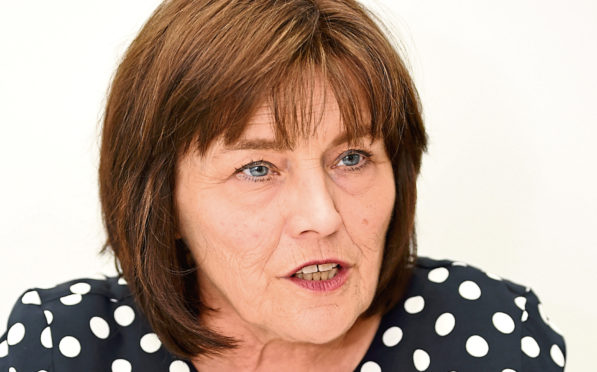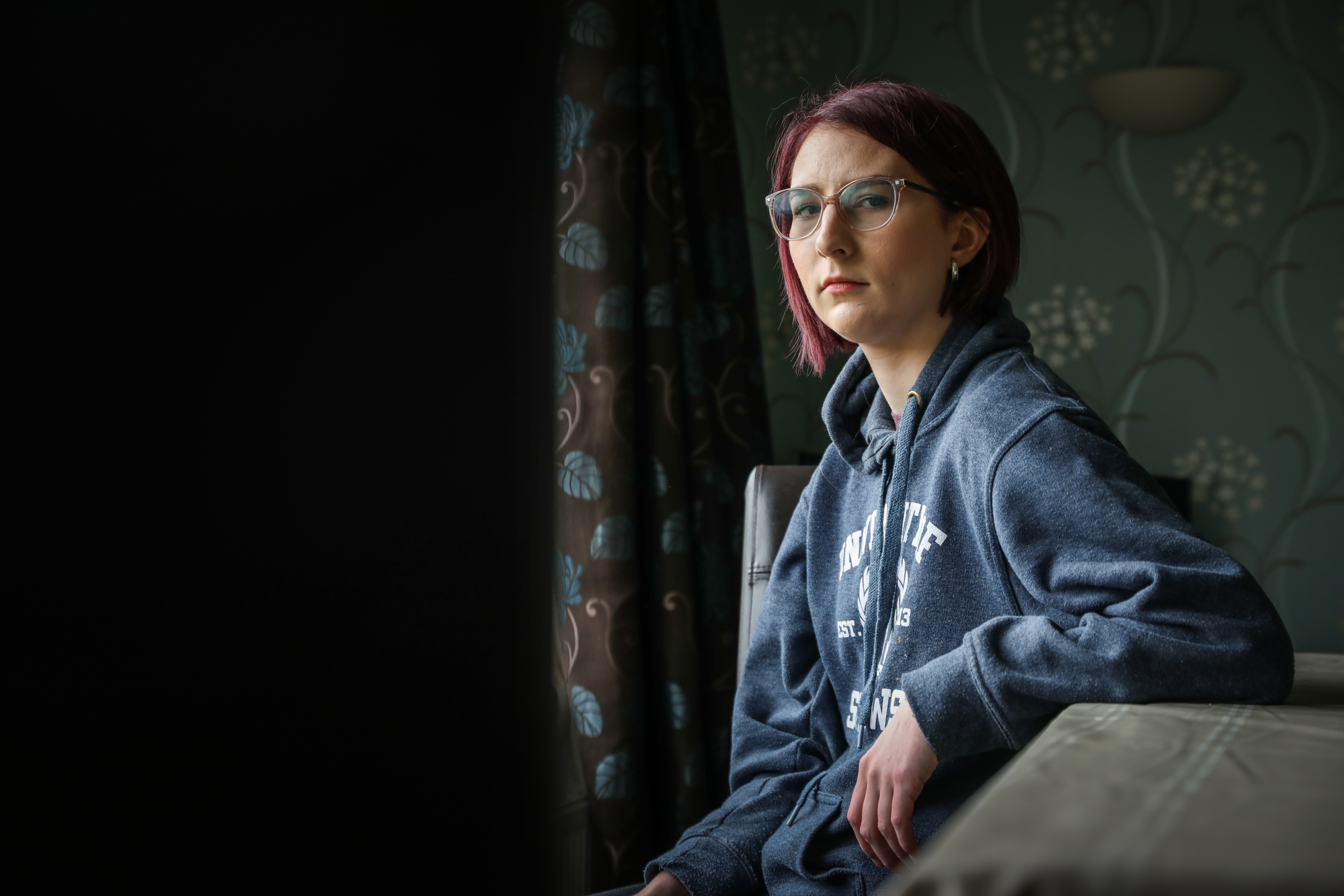
A care home resident lay dead in her room for 24 hours because there was no on-call doctor available to come out to certify her death.
The harrowing case was revealed as Scottish doctors warned the country’s out-of-hours GP service is failing due to a lack of staff.
The number of GPs willing to work out-of-hours has plummeted in recent years, with just one in five now volunteering. Some out-of-hours centres have been forced to close due to a shortage of doctors.
Doctors’ leaders say the heavy workload GPs face in family practices has left most unwilling to take on weekend and nighttime work.
Now they are warning of a crisis as the few remaining GPs struggle on with overflowing waiting rooms.
Dr Andrew Buist, chairman of the British Medical Association GP committee, said: “Out-of-hours centres regularly close because there is no cavalry to send for when the pool of GPs is already overwhelmed.
“The workload in GP practices is such that fewer want to pitch up for work in out-of-hours centres.”
“There is a chronic shortage of GPs during normal daytime surgeries. The evening and weekend shortage is a serious problem.
“Being a GP with the increasing list of patients and burden of paperwork is much less attractive than it was previously.
“The incentive to work overtime for nothing after an exhausting 10 or 11-hour day in a surgery is not there. Understandably, they want to be home with their families.”
Out-of-hours services have been reduced to emailing local GPs on a Friday, asking if anyone is available to work at the weekend.
Scotland’s out-of-hours GPs are based in centres, where teams are divided into those taking surgeries and those on house calls.
Glasgow GP Ronnie Burns, 49, works at a busy health centre in the east of the city, and does a weekend shift once a fortnight at the out-of-hours centre at Victoria Infirmary.
He said he had experienced a number of unacceptable incidents due to a shortage of doctors.
Earlier this year he said he started a weekend shift to learn that no doctor had been able to visit a care home where a resident had died, to certify them dead.
He said: “The care home was left with the dead resident for 24 hours.
He added it had been a upsetting incident for the staff, saying: “They remember it well, months later.”
Patients may also endure long waits before an out-of-hours doctor can come to see them at their home.
“At its worst, usually after busy weekend shifts, people can be left waiting 24 hours but on the whole it is still functioning,” said Dr Burns.
“I’ve had two shifts in the last six months where I was seeing patients at home who had called for a doctor the previous day.”
Dr Burns, a father-of-four and member of the BMA’s Scottish General Practitioner Committee, said, the system is now stretched to the point where it is not safe.
“When it works, it works well. It’s not good when it overflows. It is now, at times, not safe and we need to look at what needs to be done.
“My average is 10 house calls over six hours but can be up to 14, while making life-and-death decisions.
“We are trained to manage reasonable levels of risk and we prioritise patients based on the information we are given. GPs are very skilled at this, but when demand overflows, the risk is too great.”
Out-of-hours services are the responsibility of the Scottish Government.
A Scottish Government spokesperson said: “We have a record number of GPs working in Scotland and we are committed to increasing numbers by at least 800 in the next 10 years. We are also investing an additional £250 million in direct support of general practice by 2021.”
A spokesperson for Greater Glasgow and Clyde said: “We are aware that GP out-of-hours services are busy and that is why we have developed a campaign to remind patients that they should not attend a GP out-of-hours service before calling NHS 24.
“There are developments under way in primary and community services which will offer people a wider range of choice in terms of getting support out-of-hours. We are taking steps to increase resilience to reduce the reliance on medical staff.”
I had a seizure and was told to take a taxi
People living in St Andrews were stunned when their out-of-hours service hours changed to close after midnight.
Those living in the area must travel an hour to Ninewells Hospital in Dundee or the Victoria Infirmary in Kirkcaldy for overnight emergencies.
St Andrews University maths student Anna-Ruth Cockerham had to pay £100 for taxi fares to travel to and from an out-of-hours centre in Dundee after having a seizure.
Anna-Ruth said: “I called the out-of-hours helpline and was told my only option was to pay for a taxi to a centre in Dundee.
“It cost me £100 there and back.”
Ruth-Anne, 19, has a neurological condition that means she can suffer seizures. She added: “I am one of several students with a disability who needs an out-of-hours GP service.
“Like most students, I live on a limited budget.
“Also, I fear some taxi drivers will be reluctant to take an ill patient in case we worsen on the route.
“I feel students and others living in St Andrews deserve better health care than this.”
Nicky Connor, director of Fife Health & Social Care Partnership, said: “Delivering out-of-hours urgent care is a national challenge and in Fife we have been working to redesign and implement a model of care that is built on safety and sustainability.
“From November 4, how we deliver services will be working from three centres across Fife. Safety is paramount. When GP surgeries and pharmacies are closed and someone is too ill to wait then calling 111 initially is the first step. Advice will be given on how to manage at home or an appointment arranged at an out-of-hours centre or a home visit provided.
“If travelling to an out-of-hours centre is a concern, this will be considered in the clinical assessment.”
New plan to tackle family GP shortage
GPs are being offered higher fees for helping train medical students, as part of efforts to boost the number of doctors.
The Scottish Government has announced the tariff paid to GP practices for teaching undergraduates is to rise from £40 to £85 a session – with the funding for this coming from an additional £5 million being invested before the end of this parliament.
Evidence shows that training within a practice during medical school increases the likelihood of students going on to become a GP. The change is being introduced in the wake of a report by the Increasing Undergraduate Education In Primary Care Review Group, which was chaired by Professor John Gillies.
Health Secretary Jeane Freeman said: “I am grateful to Professor Gillies and the Review Group for this report and fully endorse its recommendations. It is only right that GP practices are properly funded for covering the cost of teaching medical students. Implementing the recommendations from this report is part of a range of actions we are taking to ensure we deliver the GP workforce we need.
“We will have increased medical school places by 190 in total by 2021 – a rise of 22% from 2016 levels. In addition, we are widening access opportunities to study medicine in Scotland, ensuring that more medical school places are offered to Scottish students so they have the opportunity to pursue a career here.”
In August a report by Audit Scotland warned plans to increase the number of GPs in Scotland face “significant challenges”. It said the government would struggle to meet its commitment to recruit an extra 800 family doctors over the next decade.
Auditor General Caroline Gardner said: “They’ve made a number of commitments to train additional GPs, physios, pharmacists and so on – and those commitments are on track – but it is not clear those commitments will turn into the GPs and other professionals who need to be there in primary care practices as this change is happening.”
Her report described workforce planning as “fragmented.”

Enjoy the convenience of having The Sunday Post delivered as a digital ePaper straight to your smartphone, tablet or computer.
Subscribe for only £5.49 a month and enjoy all the benefits of the printed paper as a digital replica.
Subscribe © Mhairi Edwards/DCT Media
© Mhairi Edwards/DCT Media